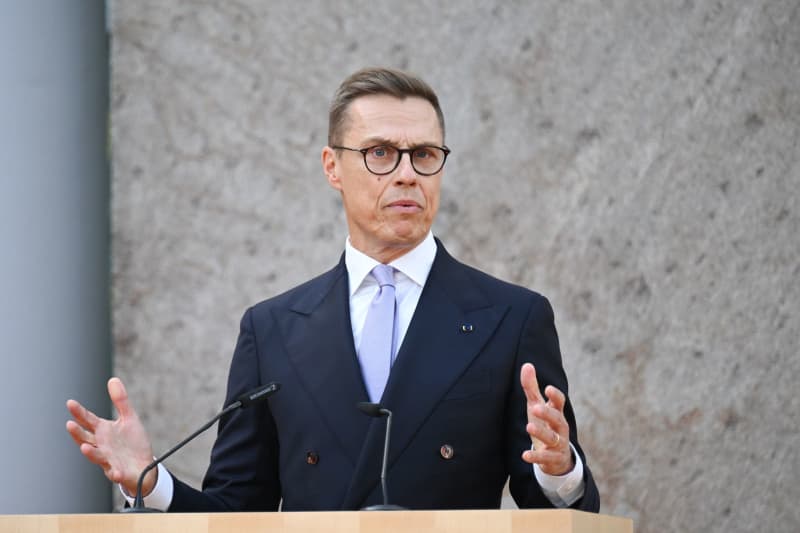Finnish President Alexander Stubb recently expressed his views on the ongoing conflict in Ukraine ahead of a significant meeting of the Joint Expeditionary Force (JEF) in Tallinn. He declared that calls for peace talks and a ceasefire were premature and emphasized the need for Ukraine to achieve victory in the war before any negotiations could begin. In Stubb’s perspective, and shared by many leaders attending the JEF meeting, the discussion should pivot around solidifying support for Ukraine, primarily through practical provisions of arms and ammunition. The overarching principle is that for Ukraine to approach any potential negotiations, it must do so from a position of strength, reaffirming its full independence, territorial integrity, and sovereignty.
Stubb highlighted the urgency of providing continued military support to Ukraine, stating that this assistance should remain robust and effective in the face of Russian aggression. His statements resonate strongly within the context of the JEF, which comprises various Northern European countries committed to strengthening military collaboration and defense strategy, particularly in response to the heightened threat posed by Russia. As the JEF is led by the United Kingdom and includes NATO members such as Denmark, Norway, and the Baltic states, the collective commitment reflects a broader Western strategy to ensure Ukraine’s sovereignty is upheld against foreign encroachment.
Lithuanian President Gitanas Nausėda echoed Stubb’s sentiments at the meeting, acknowledging the shifting perceptions of strength between Ukraine and Russia. He pointed out that Russia currently believes it holds the upper hand, making it even more challenging to bring the Kremlin to the negotiation table. Nausėda noted the importance of unwavering commitment in support of Ukraine, expressing hope that consistent military backing could change the battlefield dynamics in favor of Ukraine. His remarks underscore the shared conviction among Baltic and Nordic leaders about the critical need to empower Ukraine through practical military aid, thereby enabling it to dictate terms if and when negotiations arise.
This meeting in Tallinn is particularly significant, as it brings together leaders from countries that have played a pivotal role in backing Ukraine since the onset of the full-scale invasion in February 2022. The Baltic States and Nordic countries have shown resolute support and have been vocal in their opposition to Russian aggression. The central focus of the meetings has been on fortifying Ukraine’s position, emphasizing that military readiness must accompany discussions of peace and potential resolutions to the conflict. The leaders are united in their stance that Ukraine’s military success on the ground is a prerequisite for any meaningful dialogue about peace.
The sentiment surrounding military assistance underscores a broader NATO strategy aimed at not only securing Ukraine’s frontlines but also dissuading further aggression from Russia. The JEF’s commitment to practical and sustained support aligns with NATO’s ongoing initiatives to bolster defenses across Europe. Leaders are acutely aware that any premature calls for a ceasefire could jeopardize the progress made in supporting Ukraine’s capabilities and potentially embolden Russian forces, making the necessity for clear and unwavering support an imperative.
In conclusion, the discussions at the JEF meeting reflect a concerted effort among Northern European nations to maintain a unified front in supporting Ukraine’s aspirations for independence and territorial integrity. As emphasized by President Stubb and supported by President Nausėda, the primary focus remains on practical military aid rather than premature negotiations. The prevailing belief is that Ukraine must be afforded the opportunity to strengthen its position on the battlefield; only then will it be in a viable position to engage in discussions regarding peace. The stakes are high, and the consistent message from these leaders is clear: tangible support for Ukraine is vital to altering the conflict’s momentum and ultimately achieving lasting peace.

